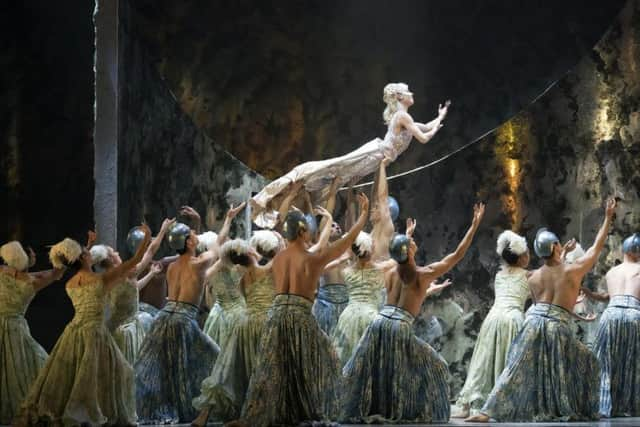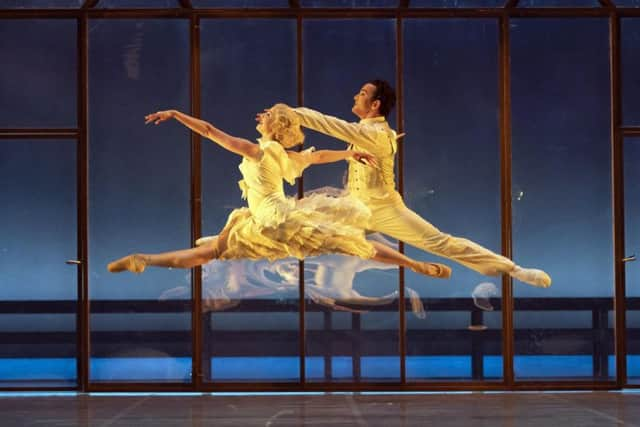How a north-south funding gap makes it hard for Leeds' Northern Ballet to keep in step with its London rivals
Now based in Leeds with a purpose-built dance centre, the company prepares for its 50th anniversary celebrations on the back of innovative productions like 1984 and with its work showcased in theatres and cinemas around the country.
But according to chief executive Mark Skipper, Northern Ballet’s ability to build on this success is being hampered by historic funding disparities which mean the company gets only half the public funding received by its London counterparts.
Advertisement
Hide AdAdvertisement
Hide Ad

Arts Council England, the public body mainly responsible for funding cultural organisations, gives the Leeds company £3.1m a year as part of its national portfolio but hands out twice as much to the English National Ballet. The Birmingham Royal Ballet gets nearly £8m a year from the same source.
Raising the issue in an interview on BBC Radio 4’s Today show, Mr Skipper said the disparity was historical as his organisation had always had a lower funding base, but that it “has always meant life has been more tricky for us”.
Playing down the suggestion that snobbery against the North was a factor, he said: “When dancers choose to come to a country, to come to England, they are always going to be attracted to something that has ‘national’ or ‘royal’ in the title.


“The more unique selling point we have as Northern Ballet is the fact we tend to do performances and productions that are not obvious. We will do things like The Boy in the Striped Pyjamas, Casanova or 1984, and not the traditional ballet titles, so a focus on dancers who want to be great classical dancers but also want to be great actors.
Advertisement
Hide AdAdvertisement
Hide Ad”I think that is what we have that attracts dancers. But inevitably we have less funding, we can pay our dancers less, we are not going to be as attractive as a first choice company for many dancers.”
Though Northern Ballet has an academy that develops homegrown talent, it only has dancers until they are 16 before they have to go off to a larger school to complete their training, meaning the Leeds company then has to battle to get them back.
According to its annual report, 43 per cent of Northern Ballet’s budget comes from public funding such as Arts Council grants and arrangements with corporate firms, trusts and individual donors, with the remainder from income it generates itself.
And the former category of funding is set to become a little more squeezed with the end of its nine year partnership with Leeds retail bank First Direct at the end of this month.
Advertisement
Hide AdAdvertisement
Hide AdThe news came as a blow to Mr Skipper, who expected the sponsorship deal to continue and is now on the look-out for a corporate firm to fill in the gap.
He says Northern Ballet’s extensive touring to more than 40 towns and cities across the UK, more than any other ballet company, makes such a deal an attractive proposition for a firm looking for new ways to engage with its customers.
But he admits: “For companies in London I would say it is much easier to attract support. We have a huge pool of supporters here in Leeds, corporates, trusts and individuals. But obviously there are more wealthy people who live in London, so it is going to be easier.”
A spokeswoman for Arts Council England said: “We very much recognise the value of Northern Ballet’s work and that it is currently celebrating its 50th year is testament to its excellence.
Advertisement
Hide AdAdvertisement
Hide Ad“Northern Ballet is the third-highest funded National Portfolio Organisation in the Arts Council’s dance portfolio, after Birmingham Royal Ballet and English National Ballet. Northern Ballet will receive a total of £12,448,000 during the 2018/22 portfolio.
“We’ve also funded the organisation through both our Strategic Touring and Cross Border Touring programmes and are currently funding them through Ambition for Excellence for Leeds Dance Partnership activity.”